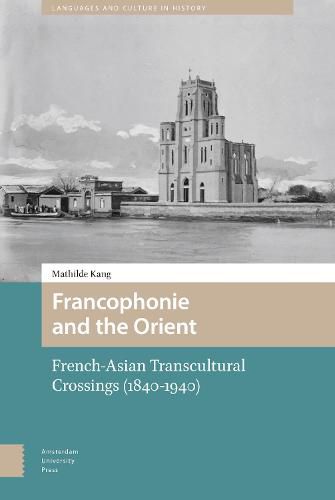Readings Newsletter
Become a Readings Member to make your shopping experience even easier.
Sign in or sign up for free!
You’re not far away from qualifying for FREE standard shipping within Australia
You’ve qualified for FREE standard shipping within Australia
The cart is loading…






Based on transnational France-Asia approaches, this book studies Asian cultures once steeped in French civilisation but free of a colonial mode in order to highlight the transliterary examples of cultural transfer. This book is a pioneering study of the Francophone phenomenon within the context of cultures categorised as non-Francophone. Espousing a transcultural approach, Francophonie and the Orient examines the emergence of French heritage in the Far-East, the various forms of its manifestation, and the modes of its identification. Several thematic signposts guide the diverse pathways of the research. Firstly, the question is posed as to whether colonisation is the ultimate coat of arms for entry into Francophonie? Secondly, the book raises issues relative to Asian Francophone works: the emergence of literatures with French expression from Asian countries historically free of French domination. Finally, the study reconfigures the Asian Francophone heritage with new paradigms (transnational/global studies), which redefine the frontiers of Francophonie in Asia.
$9.00 standard shipping within Australia
FREE standard shipping within Australia for orders over $100.00
Express & International shipping calculated at checkout
Based on transnational France-Asia approaches, this book studies Asian cultures once steeped in French civilisation but free of a colonial mode in order to highlight the transliterary examples of cultural transfer. This book is a pioneering study of the Francophone phenomenon within the context of cultures categorised as non-Francophone. Espousing a transcultural approach, Francophonie and the Orient examines the emergence of French heritage in the Far-East, the various forms of its manifestation, and the modes of its identification. Several thematic signposts guide the diverse pathways of the research. Firstly, the question is posed as to whether colonisation is the ultimate coat of arms for entry into Francophonie? Secondly, the book raises issues relative to Asian Francophone works: the emergence of literatures with French expression from Asian countries historically free of French domination. Finally, the study reconfigures the Asian Francophone heritage with new paradigms (transnational/global studies), which redefine the frontiers of Francophonie in Asia.